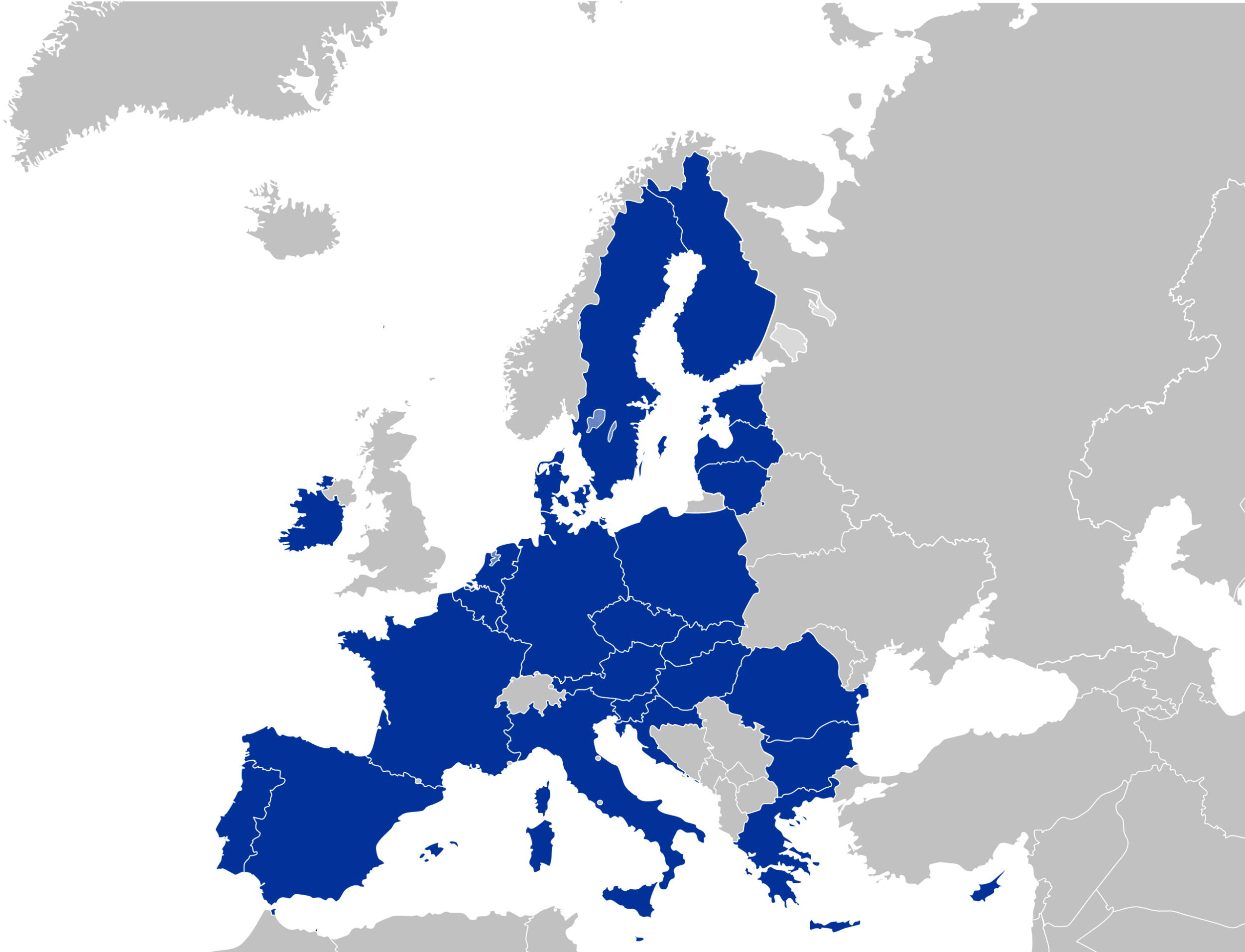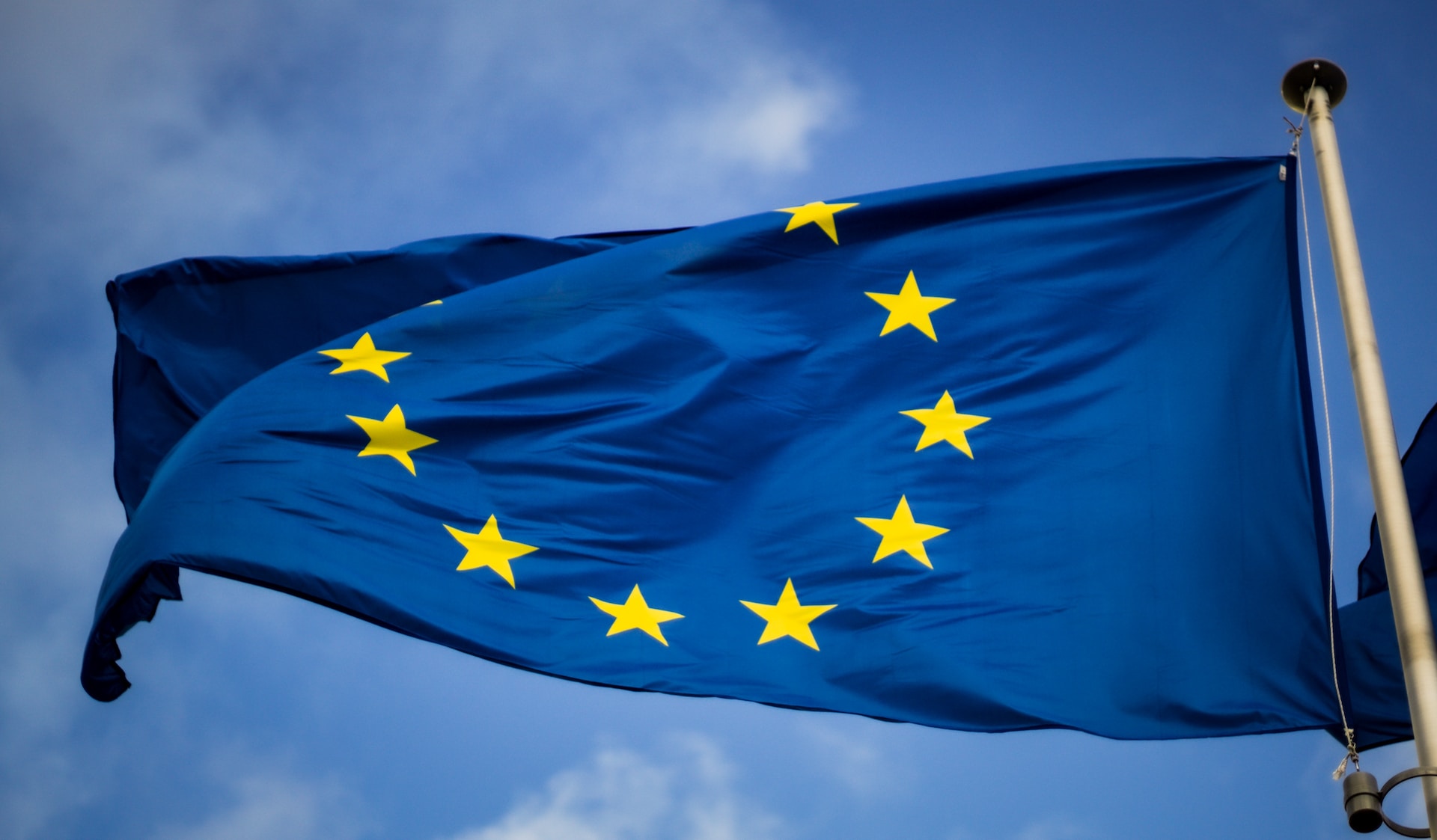It is no surprise that a lot of people are drawn to the concept of living in Europe. Many are attracted by the diversity of cultures, long history and landmarks that can be found nearly everywhere as well as the natural beauty of the continent. Europe is well known for its high standard of life, well organised healthcare, education as well as vast business opportunities. Overall, the combination of the above make Europe a place where various people from all over the world would like to live or at least often travel to.
For many individuals around the globe, the allure of European Union (EU) citizenship is irresistible. With so many advantages, like the freedom to live, work, and study in any of the 27 member nations, visa-free travel inside the Schengen region, access to top-notch education and healthcare, it is understandable why individuals are looking into all options for obtaining EU citizenship. National regulations of EU member states clearly describe how one can obtain so called EU-citizenship. This article aims to shed light on the process of obtaining EU citizenship, and how individuals can embark on this life-changing journey.
What is EU citizenship?
EU citizenship is a supplementary status granted to nationals of European Union member countries. Established by the Maastricht Treaty in 1992, European Union citizenship is intended to strengthen the bond between EU member states and their citizens by providing a range of rights, freedoms, and protections.
European Union citizenship fosters a sense of belonging to a broader European community and encourages cooperation and understanding among citizens of different EU member states. However, it’s important to remember that EU citizenship is a supplement to national citizenship rather than its replacement. Citizens of EU member states are automatically awarded this additional citizenship; one cannot apply for it directly. Receiving it is a result of becoming one of EU member states’ national?

What are the key benefits of European Union citizenship?
Key privileges and rights that come with EU citizenship include:
- Freedom of movement: Citizens of the EU are allowed to travel freely and may reside, work, study, and retire in any country that is a member of the EU. This makes it possible for EU people to access employment, education, and social services throughout the EU.
- Right to participate in elections: EU citizens enjoy the same electoral rights as citizens of any other EU member state in which they reside, including the right to vote and the ability to run for office in municipal and European Parliament elections.
- Consular protection: EU citizens have the right to seek aid and protection from the embassy or consulate of any other EU member state in a place outside the EU if their home country lacks an outpost.
- Petition and complaint mechanisms: EU citizens are permitted to petition the European Parliament and file complaints with the European Ombudsman about issues pertaining to EU legislation and regulations.
- Freedom to access information: Subject to a few restrictions and conditions, EU citizens have the right to examine documents kept by EU institutions and agencies.
Why shall I get EU Citizenship?
The benefits of obtaining EU citizenship are numerous. With European citizenship, you have increased global mobility, an abundance of options, and the unrestricted ability to work in any EU member state.
Here are the top six reasons to become an EU citizen:
- Unrestricted work and residence rights in 27 EU countries
- A European passport offering a safety net in times of crisis
- Visa-free travel to more than 150 countries
- Ability to to invest and build a successful business in a vast market and to own property without requiring a permit
- Access to exceptional higher education, scholarship opportunities and national healthcare benefits
- Safety for the family: an EU passport can be inherited by future generations
What are the ways to obtain European citizenship?
The main question people who are interested in the subject ask is, “How can I obtain EU citizenship?” There are numerous ways to get there, for example:
- Through ancestry – if you possess a familial connection that enables you to inherit EU citizenship.
- Via naturalization – if you have resided and been employed in an EU country for a sufficient duration to be eligible for citizenship.
- Through investment – if you possess the financial means to invest in an EU country and obtain citizenship in return.
We’ll go over a few of the options to obtain EU citizenship in the following section of the post.

EU citizenship by descent – all you need to know about the process
One of the most compelling options is claiming citizenship by descent, which allows individuals to connect with their European heritage and reap the rewards of EU citizenship. In this comprehensive guide, we will delve into the nuances of EU citizenship by descent and offer valuable insights to help you navigate this complex process.
1. Understanding EU Citizenship by Descent
Citizenship by descent is a unique path to EU citizenship, which allows individuals to claim citizenship based on their ancestral lineage. This route often bypasses the lengthy residency requirements and other stringent criteria associated with naturalization. While each member country has specific rules and eligibility criteria, some common aspects to consider when pursuing EU citizenship by descent include eligible countries, lineage and documentation, generational limits, legal and consular support, dual citizenship, and the expected timeframe.
2. Popular Countries for European Union Citizenship by Descent
Not all EU countries offer citizenship by descent, but some of the most popular ones include the ones listed below:
A) Ireland: Embrace Your Celtic Roots
Irish citizenship is highly prized since it grants visa-free travel to countries like the US and Australia as well as limitless stays inside the EU and the UK. The program for Irish citizenship through ancestry offers a great chance to receive an Irish passport. Those having Irish ancestry who can trace it back to their great-grandparents are encouraged to apply for citizenship through this scheme. Dual citizenship is permitted in Ireland, allowing candidates to keep their present nationality.
B) Italy: Reconnect with Your Italian Ancestry
Jure sanguinis, or citizenship by descent, is a legitimate means to acquire Italian citizenship based on ancestry. Through this procedure, people who can prove they have Italian ancestry—often going all the way back to their grandparents or great-grandparents—can apply for citizenship in Italy.
Depending on the applicant’s country of origin as well as their exact familial ancestry, different eligibility requirements and supporting evidence could apply. Typically, in order to prove their relationship to Italian ancestors, applicants must present important documents including birth, marriage, and death certificates. Furthermore, applicants need to show that their Italian ancestor did not become a citizen of another nation prior to the birth of the subsequent generation in the line.
The applicant may submit their application to the Italian consulate or embassy in their country of residence after gathering and verifying all required documentation. Following acceptance, the applicant will be acknowledged as an Italian citizen and gain access to privileges including an Italian passport, the freedom to live and work in Italy and other EU nations, and the capacity to pass Italian citizenship on to their offspring.
C) Greece: Rediscover Your Hellenic Heritage
Greek citizenship by descent is a legal procedure that enables people of Greek descent to assert Greek citizenship in light of their ancestry. Depending on the precise conditions, those with Greek parents, grandparents, or great-grandparents frequently have access to this pathway.
Applicants normally need to present official documents, such as birth, marriage, and death certificates, to verify their connection to a Greek ancestor in order to petition for Greek citizenship by descent. It’s vital to remember that depending on the applicant’s place of origin, these documents may need to be translated into Greek and have an Apostille certification.
The application procedure often entails delivering the necessary paperwork to the relevant Greek authorities or directly to the Greek consulate or embassy in the applicant’s place of residence. Depending on the complexity of the case and the workload of the Greek authorities, the process could take many months or even years.
Following acceptance, the applicant will be acknowledged as a citizen of Greece and be eligible for a number of advantages, including a Greek passport, the right to reside in and work in Greece and other member states of the European Union, and the capacity to pass Greek citizenship on to their offspring.
D) Poland: Claim Your Polish Legacy
Polish citizenship by descent is a legal route open to people who have Polish parents, grandparents, or great-grandparents, depending on the particulars and the applicant’s capacity to establish lineage.
Applicants normally need to present official documents, such as birth, marriage, and death certificates, to prove their link to a Polish ancestor in order to petition for Polish citizenship by descent.
The application procedure often entails delivering the required paperwork to the relevant Polish authorities or directly to the Polish consulate or embassy in the applicant’s place of residence. Depending on the complexity of the case and the workload of the Polish authorities, the processing period may vary, lasting many months or even years.
Upon acceptance, the applicant will be acknowledged as a Polish citizen and gain access to a range of advantages, including a Polish passport, the freedom to live and work in Poland and other member states of the European Union, as well as the capacity to confer Polish citizenship on their offspring.
Research each country’s eligibility criteria to determine the best fit for your situation.
3. Establishing Lineage and Documentation
Proving direct lineage to an ancestor from an EU country is crucial for a successful citizenship by descent application. Obtain official documents such as birth, marriage, and death certificates to establish a clear connection to your European forebears. In some cases, you may need to provide evidence of your ancestor’s emigration or naturalization records to meet a country’s requirements.
4. Enlisting Legal and Consular Support
Navigating the citizenship by descent process can be complicated due to varying requirements, language barriers, and the necessity of obtaining official documents from foreign jurisdictions. Engaging the services of an immigration lawyer or a specialized agency with expertise in citizenship by descent can significantly improve your chances of success by providing guidance and support throughout the application process.
5. Dual Citizenship Considerations
The concept of dual citizenship has become increasingly popular as globalization continues to connect countries and cultures. Dual citizenship, or dual nationality, is when a person is a citizen of two countries simultaneously. This unique status offers numerous benefits, such as increased travel opportunities, access to social services, and a greater sense of cultural identity. Based on three example countries that accept dual citizenship: Poland, the United Kingdom, and the United States, let’s try to understand the implications of dual citizenship.
Poland is a nation in Central Europe with a varied cultural heritage and a rich history. The Polish government recognizes dual citizenship, which means that Polish citizens can also hold citizenship of another country without facing any legal consequences. However, Poland does not actively promote dual citizenship and treats dual citizens as solely Polish citizens within its borders.
Polish citizenship can be obtained through various means such as birth, descent, adoption, and naturalization. Those of Polish descent, in particular, can apply for dual citizenship by proving their heritage through documentation like birth certificates and marriage records. As a member of the European Union, Polish citizens enjoy visa-free travel within the Schengen Area, making dual citizenship attractive for international travel and business opportunities.
The United Kingdom is a country in Northwestern Europe comprising four constituent countries: England, Scotland, Wales, and Northern Ireland. The UK allows its citizens to hold dual citizenship without restrictions. British citizens can acquire dual nationality through birth, ancestry, marriage, or naturalization.
The right to live and work within the European Economic Area is just one benefit of having dual citizenship with the UK, along with the ability to travel to many other nations without a visa. It’s important to note that dual citizens must use their UK passport when entering and leaving the country.
The United States, a vast country in North America, is a nation built on immigration and diversity. While the US government does not formally endorse dual citizenship, it does permit it. US citizenship can be acquired through birth, naturalization, or descent.
Dual citizens of the US can benefit from advantages like more opportunities for travel, better access to healthcare, and the right to live and work in the country.. However, they must also be aware of the responsibilities that come with dual citizenship, such as potential tax obligations and the requirement to enter and leave the US using their US passport.
Dual citizenship offers various benefits, including expanded travel options, access to social services, and a stronger sense of cultural identity. Countries like Poland, the United Kingdom, and the United States recognize dual citizenship, enabling individuals to maintain connections to their heritage while enjoying the advantages of their adopted country. However, it’s essential to be aware of the potential responsibilities and legal obligations that come with holding dual nationality.
6. Timeframe Expectations
The processing time for citizenship by descent applications varies widely, depending on factors such as the country’s bureaucracy, the complexity of your case, and the completeness of your documentation. In some instances, the process may take several years. Patience and persistence are vital when pursuing this path.
7. Cost of processing EU citizenship by descent
The processing fee for European Union citizenship by descent, encompassing service and administrative fees, can cost between EUR 1,000 to EUR 3,000 with variations across different countries. This estimate does not include potential legal expenses or charges related to acquiring documentation.
EU citizenship by descent offers a unique opportunity to reconnect with your European heritage and unlock the benefits of EU citizenship. However, it requires thorough research, careful preparation, and a commitment to navigating the often complex and time-consuming process. By following this comprehensive guide and enlisting the right support, you can successfully trace your lineage and embrace your European roots. However if it is not your path, what are your other options?

What are the other paths to EU Citizenship?
Whether you choose naturalization, marriage, or investment, patience and dedication are key in navigating the journey toward your European dream.
Naturalization: Becoming a European Citizen
Depending on the individual country, one must live and work in an EU nation for a minimum of five years in order to become naturalized. The application process and required evidence, such as language proficiency, will vary based on the chosen pathway to citizenship, whether through work or marriage.
EU Citizenship through Work
You can become a naturalized citizen by moving to an EU nation on a work visa and remaining there for five to ten years. Typically, a job offer from an EU employer and employer sponsorship are required to obtain a work visa. Depending on skills and experience, different work permits are available, with the EU Blue Card being the most popular. Candidates must amass enough points in the scoring system, which takes into account education, work experience, and additional talents.
EU Citizenship through Marriage
The citizenship procedure may be sped up by marrying an EU citizen. In the majority of EU nations, three years after a marriage, a person becomes eligible for naturalization. If both partners are foreign nationals, they must first apply and satisfy all citizenship requirements, in many cases including the language requirements.
Citizenship by Investment in Europe
If you have enough money, citizenship through investment programs, often known as Golden Visas, can provide you an EU passport. Many countries have different investment opportunities and minimum quantities, but common choices include buying real estate or government bonds. You can apply for an EU passport after three to five years, normally without any language requirements but with only a few months of annual residency.
Popular EU Countries with Investment Schemes
Some well-known EU citizenship investment schemes include:
1. Malta: Direct citizenship within three years by purchasing real estate for at least €700,000 or expedited options within a year by investing €750,000. Other options include government bonds or donations to approved organizations.
2. Portugal: Permanent residence granted rapidly, followed by citizenship after five years. The most common investment is real estate for at least €500,000.
3. Spain: Permanent residency with a €500,000 real estate investment, followed by citizenship eligibility ten years later.
4. Greece: Cheapest residence-through-investment option, requiring a €250,000 minimum. Citizenship eligibility arises after seven years.
5. Germany: Citizenship through business investment that benefits the country’s economy by creating jobs and economic opportunities. Self-employment visas lead to citizenship eligibility after six years.
Timeframe for Obtaining EU Citizenship
The time to secure European citizenship ranges from several months to years, depending on the chosen pathway:
– Six months to a year and half for citizenship by descent
– Five to ten years for citizenship by naturalization
– One to five years for citizenship by investment
Conclusion
In conclusion, getting EU citizenship can become a reality by carefully weighing the available options and meticulously navigating the requirements, opening the door to a world of opportunities and an improved quality of life.
Are you by any chance of Polish origin? Find out if you are eligible for EU citizenship by taking the test below:

